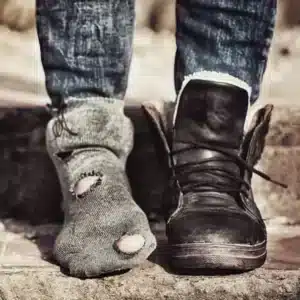Melania Trump’s “Einstein Visa” Back in the Hot Seat: Did She Truly Qualify?
Melania Trump arrived in the United States like many dreamers before her—armed with ambition, a suitcase, and a visa. A Slovenian model at the time, she carved out a foothold in New York’s fashion scene, married Donald Trump, and ultimately served as First Lady. More than two decades later, her 2001 immigration story is once again under scrutiny.
The Visa in Question: EB-1, a.k.a. the “Einstein” Visa
The EB-1 category is one of the toughest U.S. immigration tracks to land. Reserved for people with “extraordinary ability” in fields such as science, athletics, business, education, or the arts, successful applicants often hold accolades like:
- Pulitzer, Nobel, Oscar, or Emmy awards
- Olympic medals
- Internationally cited scholarly work or major industry prizes
In 2001, Melania received this coveted visa—a pathway sometimes granted to just a handful of individuals from an entire country each year.
A Surprise Inheritance of Doubt
During a recent House Judiciary hearing, Texas Democrat Rep. Jasmine Crockett blasted the apparent double standard: hardline immigration policies for most, leniency for the politically connected. Crockett argued that Melania’s résumé as a model—while legitimate—did not place her in the same league as global icons such as Naomi Campbell or Cindy Crawford and likely fell short of EB-1 criteria.
“Extraordinary ability means notable prizes, sustained international acclaim,” Crockett said. “A modest modeling portfolio doesn’t fit that bill. The math ain’t mathin’.”
Republican allies countered that Melania’s long career, international magazine spreads, and high income satisfied at least three of the ten possible EB-1 benchmarks.
Not the First Time Questions Have Surfaced
Back in 2018, critics highlighted that Melania’s parents gained U.S. citizenship through family sponsorship—a process her husband derided as “chain migration.” Now, skeptics ask whether the EB-1 bar was lowered for Melania in 2001 and, if so, whether that reflects systemic favoritism toward the well connected.
What the Law Requires
USCIS guidelines say an EB-1 applicant must prove at least three of ten qualifications, including:
- Major prizes or awards for excellence
- Coverage in top-tier media about the applicant’s work
- Participation as a judge of others’ work
- Original contributions of major significance in the field
- Evidence of commanding a high salary compared with peers
- Leading roles in distinguished organizations
Melania’s defenders point to her international modeling income, magazine covers, and runway work as evidence. Detractors insist those accomplishments pale beside Pulitzer Prizes or Olympic medals—classic EB-1 benchmarks.
Why This Matters Beyond One Person
The debate speaks to a bigger question: Do prominent names receive special treatment in America’s immigration system? If so, should the government tighten or clarify standards? Moreover, should politicians who champion strict enforcement ensure those rules apply equally to their own families?
The Bottom Line
Whether Melania Trump truly met the “extraordinary ability” threshold or benefited from elite connections, her EB-1 saga underscores an ongoing conversation: the need for transparent, consistent immigration rules in a nation built by immigrants. As lawmakers spar over fairness and integrity, expect the former First Lady’s path to remain a lightning-rod example—fuel for a broader examination of how America decides who gets to stay and who must go.





